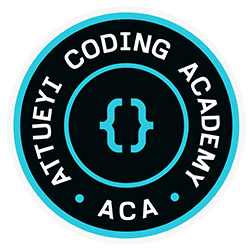In today’s rapidly evolving world, the role of education has transcended the mere transfer of knowledge. While academic excellence remains a vital component, a paradigm shift is underway, focusing on holistic student development. This shift recognizes that education should nurture not only the intellect but also emotional intelligence, creativity, critical thinking, and life skills. In this blog post, we delve into the importance of transforming education to foster holistic student growth and provide insights into how this transformation can be achieved.
Education is the passport to the future, for tomorrow belongs to those who prepare for it today.
― Malcolm X
The Traditional vs. Holistic Education Model
Traditionally, education primarily emphasized the acquisition of subject-specific knowledge and academic achievement measured through exams and grades. While these are essential, they are only a part of a broader educational experience. Holistic education, on the other hand, views students as multifaceted individuals with diverse talents, interests, and potentials. It recognizes that education should address not only cognitive development but also emotional, social, and physical aspects.

Key Components of Holistic Student Development
1. Academic Excellence: While holistic education extends beyond academics, it doesn’t disregard them. Academic excellence remains important, but it’s seen as one aspect of a student’s overall development.
2. Emotional Intelligence: Teaching emotional intelligence equips students with the ability to understand and manage their emotions, empathize with others, and build strong relationships.
3. Critical Thinking and Problem Solving: Encouraging critical thinking skills empowers students to analyze information, question assumptions, and solve complex problems.
4. Creativity and Innovation: Fostering creativity encourages students to think outside the box, explore their passions, and develop innovative solutions.
5. Character Building: Holistic education places a strong emphasis on character development, including values like integrity, empathy, and resilience.
6. Life Skills: Practical life skills, such as communication, financial literacy, and time management, are integrated into the curriculum.
Methods for Achieving Holistic Education
1. Project-Based Learning: Incorporating project-based learning into the curriculum allows students to apply their knowledge and skills to real-world problems, fostering creativity and problem-solving.
2. Social-Emotional Learning (SEL) Programs: Implementing SEL programs helps students develop self-awareness, self-regulation, and interpersonal skills.
3. Extracurricular Activities: Encouraging participation in extracurricular activities like sports, arts, and community service enhances holistic development.
4. Individualized Learning Plans: Tailoring education to each student’s needs and interests acknowledges their uniqueness.
5. Teacher Training: Equipping educators with training in holistic teaching methods and emotional intelligence is crucial.
Benefits of Holistic Education
The benefits of holistic education are numerous:
- Enhanced Student Well-being: Holistic education nurtures mental, emotional, and physical well-being, reducing stress and anxiety.
- Better Academic Performance: Students who are emotionally and socially well-adjusted often perform better academically.
- Preparing for the Real World: Holistic education equips students with the life skills they need to thrive in adulthood.
- Encouraging Lifelong Learning: By fostering a love for learning beyond the classroom, holistic education encourages lifelong learning.
Conclusion
Transforming education for holistic student development is not a trend but a necessity. It equips students not only with knowledge but also with the skills and values needed to navigate the complexities of life. As educators, policymakers, and parents, our collective effort in championing this transformation is essential. By recognizing the potential of every student and providing them with a holistic education, we contribute to the growth of individuals who are not only academically competent but also compassionate, creative, and resilient—students who will lead our world into a brighter future.
Education is the cornerstone of progress. It’s time to transform it, one holistic learner at a time.





